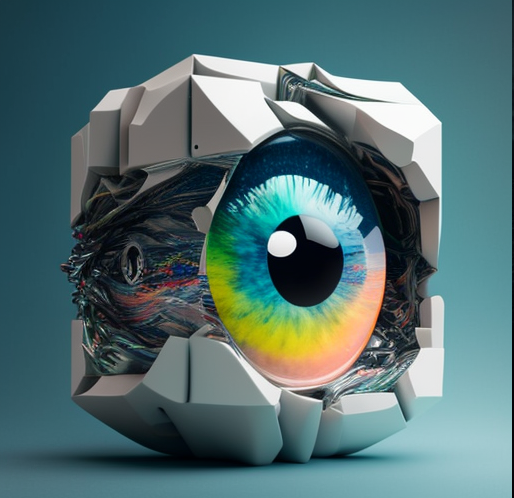Kornia is an open-source computer vision library built on PyTorch, designed for deep learning researchers and engineers. Kornia is a relatively new library that has gained popularity among researchers due to its easy-to-use API and compatibility with PyTorch. Kornia is inspired by OpenCV and is designed to fill the gaps in PyTorch’s computer vision functionality. In this guide, we will explore Kornia and its features.
Introduction to Kornia
Kornia is an open-source computer vision library built on PyTorch. Kornia stands for “Kernel OpenCV-inspired library for PyTorch”. Kornia is designed to provide computer vision primitives for deep learning researchers and engineers. Kornia is inspired by OpenCV and is designed to fill the gaps in PyTorch’s computer vision functionality. Kornia is built with PyTorch’s tensor library in mind, which makes it easy to integrate with PyTorch.
Installing Kornia
Kornia can be installed using pip, which is the most common package manager for Python. To install Kornia, run the following command:
pip install kornia
After installing Kornia, you can import it in your Python code as follows:
import kornia
Image Transformations
Kornia provides a wide range of image transformations, which are useful in a variety of computer vision tasks. Some of the image transformations that Kornia provides include:
- Resizing
- Cropping
- Padding
- Rotating
- Flipping
- Shearing
- Warping
These transformations are designed to be differentiable, which means that they can be used in deep learning models.
Geometric Operations
Kornia provides a variety of geometric operations that can be used in computer vision tasks. Some of these operations include:
- Homography
- Affine Transformation
- Perspective Transformation
- Epipolar Geometry
- Camera Pose
These operations are useful in tasks such as image registration, stereo vision, and camera calibration.
Color Space Conversions
Kornia provides a variety of color space conversions that can be used in computer vision tasks. Some of these conversions include:
- RGB to Grayscale
- RGB to HSV
- RGB to YUV
- Grayscale to RGB
These conversions are useful in tasks such as color correction and image segmentation.
Image Filtering
Kornia provides a variety of image filtering functions, such as:
- Gaussian Blur
- Median Filter
- Bilateral Filter
- Sobel Filter
- Laplacian Filter
These filters are useful in tasks such as denoising, edge detection, and feature extraction.
Losses and Metrics
Kornia provides a variety of losses and metrics that can be used in computer vision tasks. Some of these losses and metrics include:
- SSIM
- PSNR
- Dice Loss
- Focal Loss
- IoU Loss
These losses and metrics are useful in tasks such as image segmentation and object detection.
Augmentations
Kornia provides a variety of augmentations that can be used in computer vision tasks. Some of these augmentations include:
- Random Rotation
- Random Crop
- Random Flip
- Random Error
These augmentations are useful in tasks such as data augmentation for training deep learning models.
Differentiable Rendering
Kornia provides differentiable rendering functions that can be used to render 3D objects on 2D images. This feature is useful in tasks such as shape from shading and image-based rendering.
Projective Geometry
Kornia provides a variety of projective geometry functions that can be used in computer vision tasks. Some of these functions include:
- Camera Pose Estimation
- Triangulation
- Perspective-n-Point (PnP) algorithm
- Fundamental Matrix Estimation
These functions are useful in tasks such as 3D reconstruction and camera calibration.
Camera Calibration
Kornia provides functions for camera calibration, including:
- Intrinsic Camera Parameters Estimation
- Extrinsic Camera Parameters Estimation
- Stereo Camera Calibration
These functions are useful in tasks such as 3D reconstruction and stereo vision.
Inference
Kornia provides functions for performing inference on deep learning models. These functions include:
- Image Denoising
- Image Super-Resolution
- Image Segmentation
- Object Detection
These functions are useful in tasks such as image processing and computer vision applications.
Model Zoo
Kornia provides a model zoo that contains pre-trained models that can be used for a variety of computer vision tasks. Some of the pre-trained models available in the Kornia model zoo include:
- Super-Resolution
- Image Segmentation
- Object Detection
Future Development
Kornia is a relatively new library that is still under active development. Some of the planned features for future releases of Kornia include:
- More Augmentations
- Image Synthesis
- GANs
- Point Cloud Processing
Conclusion
In conclusion, Kornia is an open-source computer vision library built on PyTorch. Kornia provides a wide range of computer vision primitives, including image transformations, geometric operations, color space conversions, image filtering, losses and metrics, augmentations, differentiable rendering, projective geometry, camera calibration, inference, and pre-trained models. Kornia is designed to fill the gaps in PyTorch’s computer vision functionality and is easy to integrate with PyTorch.

